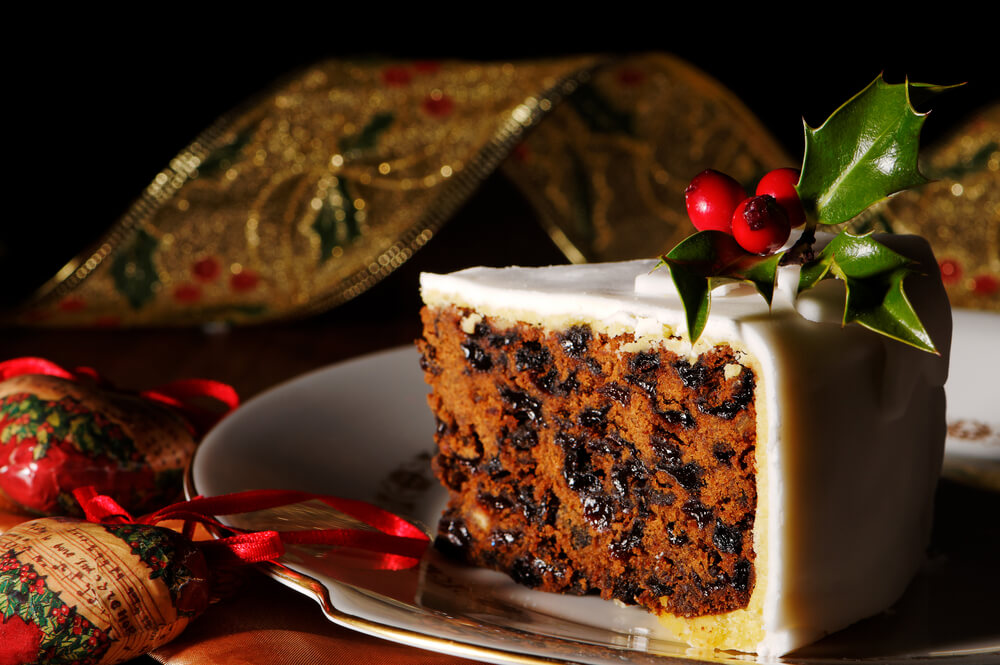Christmas is coming. I know this because of indelible evidence in my own home. My wife, Linda Gasparello, has just baked a Christmas cake. If I doubt that this is the month of Christmas, I just have to look at it, cooling on the kitchen counter, declaring itself, in its way, the harbinger of the holidays.
The cake can’t be eaten yet. No, no. Linda, who’s a phenomenon at the range, explains when she sees me circling with a knife, the cake needs to “cure” for at least a week. Rum must infuse the cornucopia of fruit that has bonded with flour and eggs and whatever else makes a cake a cake. I don’t know all the fruits and nuts that go into The Great Christmas Cake, but I do know there are dried apricots. Linda gave me some as a bribe to get out of the kitchen while she was baking the cake.
All year we eat very little cake in our home. Desserts are avoided for the usual reason: keeping down the calorie count. But recently, for a party, Linda made a carrot cake. Not because she’s my wife, but because I adore carrot cake, I can say that hers is the best ever.
How come I indulge in carrot cake when I eschew sponge, hide from German chocolate and, with a heavy heart, have even shaken my head at Sachertorte (chocolate cake covered with apricot jam and chocolate icing) in Vienna — a crime against Austria, practically an act of war? (I must confess, though, that I once ate the cake in the Hotel Sacher in Vienna where it was invented.)
The answer is carrots sound so healthy. “Good for you,” my mother used to say. She was a frightful cook and so raw carrots were better than anything she tried to do to them, which was mostly boil the life out of them until they were soft and spongy, most of the nutrients gone.
This year I read “Hotel Sacher,” a novel by Rodica Doehnert that traces the role of the great hotel at the end of the 19th century — how it was a kind of headquarters for the events that led to the end of Austro-Hungarian Empire and to World War I. If you want to research this in chilling detail, read Max Hastings’ book “Catastrophe 1914: Europe Goes to War.”
Back to cakes and Christmas. Linda’s cake has so many things in it I wonder it doesn’t cause a criticality incident or spontaneously ignite.
There seems to be a boom in cooking and baking in particular. It all goes back to Julia Child, “The French Chef” on television in the 1960s, who whet the nation’s palate for cooking. Julia showed that cooking could be fun (especially if you cook with wine and imbibe as you go) and challenging — so much so that today we have an abundance of cooking shows.
The ones I hate are those that weaponize cooking — with contestant chefs who are sent home in tears because their sauce separated or, horror of horrors, their souffle collapsed.
Anyway, it seems 2018 is the bakers’ year. Linda is an exception because she bakes and tames meat. She can make a delectable osso buco as easily the tiramisu that follows. Mostly, there’s a divide between the flour people and meat people. Pretty much in the same way, when I worked at The Washington Post, there was a divide between the pot smokers and the drinkers. Me, the latter.
I can tell baking is in by the number of recipes I find people exchanging, and I put it all down to “The Great British Baking Show” on PBS, which entertains and makes baking exciting. Here contestant chefs also are sent home, but with such teary reluctance that if you want a hug from the whole cast and the other amazing chefs, you deliberately add a cup of salt instead of sugar to the cake. Tears and hugs all round.
We’re planning a Great British Christmas Tea at our house with Devonshire clotted cream and jam on scones, little sandwiches and — play the drums and trumpets fortissimo — the fruited cake that is curing very nicely, thank you.
And for Christmas itself? We’re going out to a restaurant. Happy holidays!



